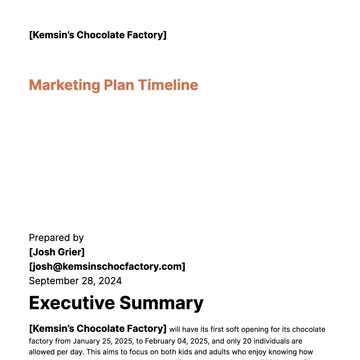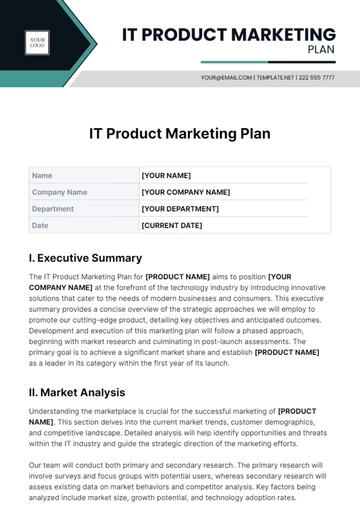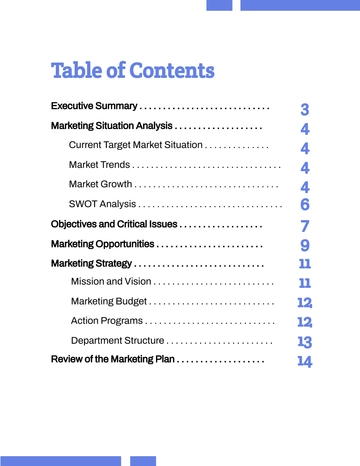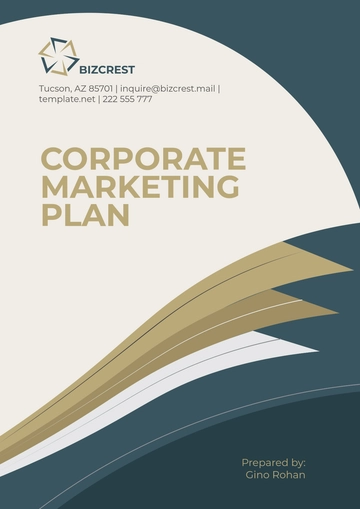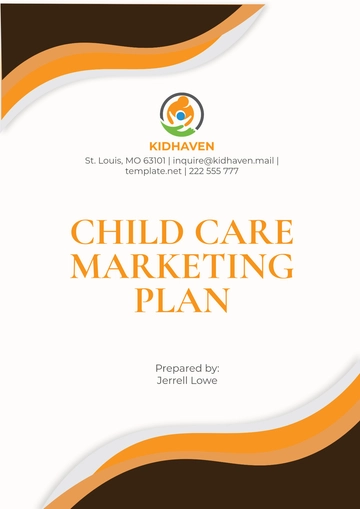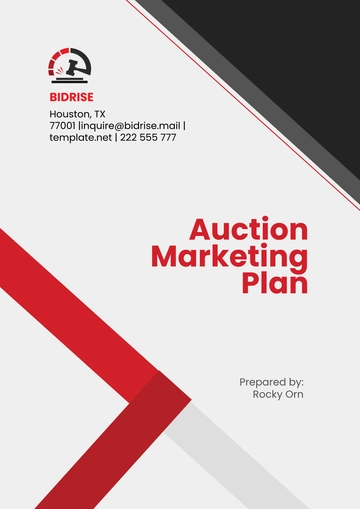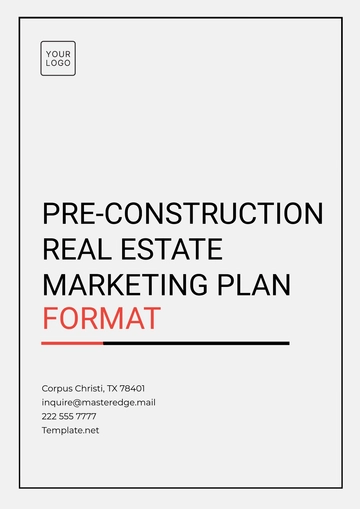Free Basic Marketing Plan
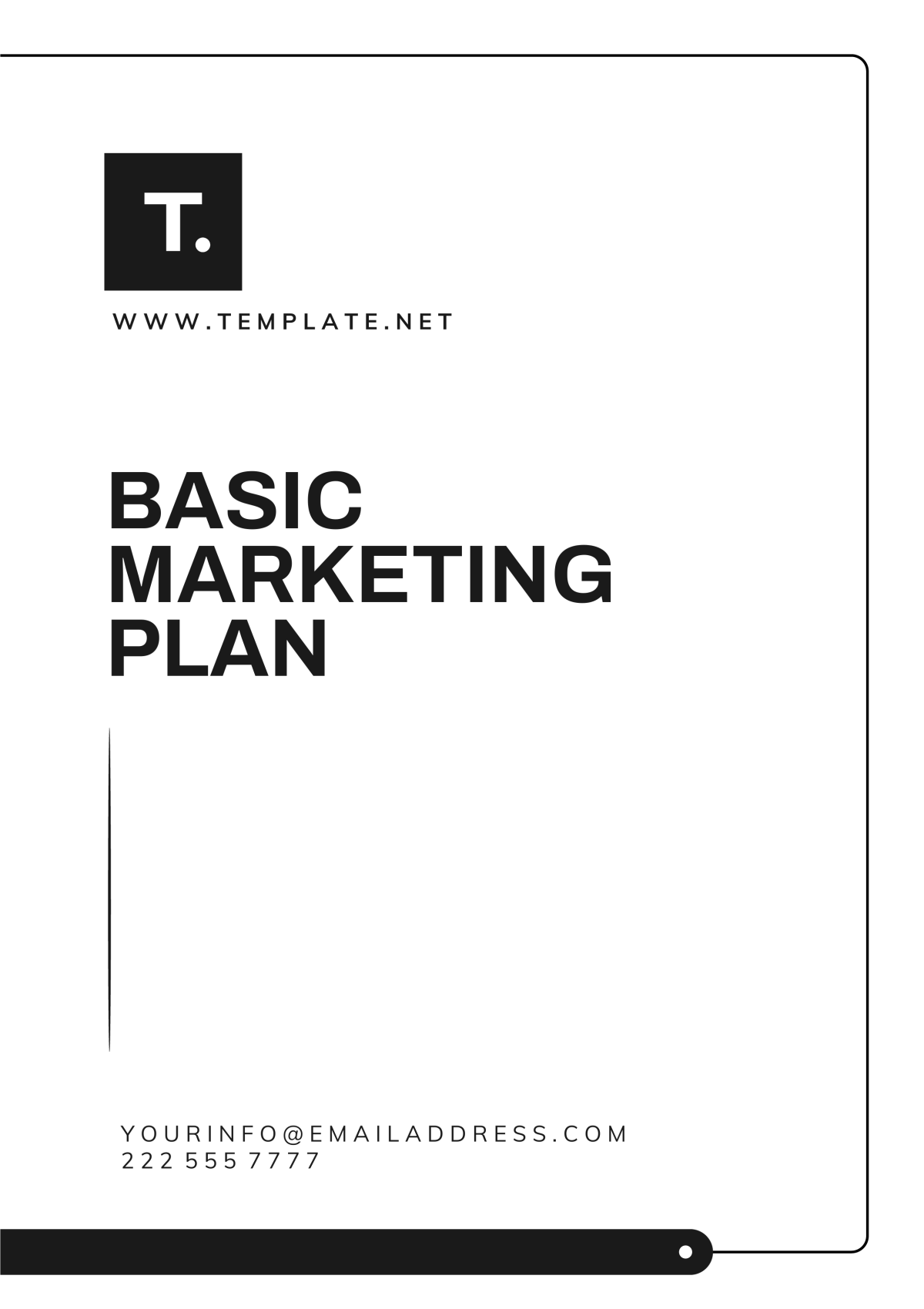
I. Executive Summary
[Your Company Name] is excited to present this comprehensive marketing plan aimed at achieving [specific marketing objectives].
In this plan, we outline our strategies to [attract new customers, increase brand awareness, etc.] through [specific marketing channels and tactics].
II. Company Overview
A. Background
[Your Company Name] is a [describe your company briefly - e.g., startup, established corporation] specializing in [your company's products/services]. Founded in [year], we have quickly established ourselves as a leader in the [industry/niche].
B. Mission Statement
[Your Company Name] is committed to [briefly state your company's mission and values].
III. Market Analysis
A. Target Market
Our target market includes [describe your target audience - e.g., demographics, psychographics, etc.]. Through thorough market research, we have identified [specific characteristics] of our target market.
B. Market Trends
The market for [your products/services] is experiencing [describe market trends - e.g., growth, shifts in consumer behavior, etc.]. We aim to capitalize on these trends through strategic marketing initiatives.
IV. SWOT Analysis
A. Strengths
[List your company's strengths]
[List your company's unique selling points]
B. Weaknesses
[Identify areas for improvement]
[Address any weaknesses in your product/service offering]
C. Opportunities
[Highlight potential opportunities in the market]
[Discuss how your company can leverage these opportunities]
D. Threats
[Identify potential threats to your business]
[Outline strategies to mitigate these threats]
V. Marketing Objectives
Our primary marketing objectives include:
Increase [specific metric - e.g., website traffic, sales, etc.] by [percentage] within [timeline].
Enhance brand awareness among [target audience].
Launch [new product/service] and achieve [specific sales target] within [timeline].
Build and nurture customer relationships to foster long-term loyalty.
VI. Marketing Strategies
A. Product Strategy
[Describe your product/service offering]
[Highlight any product/service improvements or innovations]
B. Pricing Strategy
[Outline your pricing strategy - e.g., competitive pricing, value-based pricing, etc.]
[Discuss any promotional pricing tactics]
C. Distribution Strategy
[Detail your distribution channels - e.g., online, retail, etc.]
[Discuss any plans for expanding distribution channels]
D. Promotion Strategy
[Identify your promotional channels - e.g., advertising, social media, etc.]
[Outline your promotional campaigns and initiatives]
VII. Marketing Tactics
A. Digital Marketing
[Detail your digital marketing tactics - e.g., SEO, PPC, email marketing, etc.]
[Specify budget allocation for each tactic]
B. Social Media Marketing
[Outline your social media strategy - e.g., content calendar, engagement tactics, etc.]
[Identify key social media platforms and target audiences]
C. Content Marketing
[Describe your content marketing strategy - e.g., blog posts, videos, infographics, etc.]
[Highlight content themes and distribution channels]
D. Traditional Marketing
[Discuss any traditional marketing tactics - e.g., print ads, radio, TV, etc.]
[Specify budget allocation for traditional marketing efforts]
VIII. Budget Allocation
A. Marketing Budget
Our total marketing budget for [timeline] is [dollar amount]. This budget will be allocated as follows:
Digital Marketing: [percentage]
Social Media Marketing: [percentage]
Content Marketing: [percentage]
Traditional Marketing: [percentage]
B. Return on Investment (ROI) Analysis
We anticipate a significant ROI from our marketing efforts, with projections indicating [expected ROI percentage].
IX. Implementation Plan
A. Timeline
[Outline key milestones and deadlines]
[Allocate tasks and responsibilities]
B. Resource Allocation
[Specify human resources, technology, and other resources required for implementation]
X. Monitoring and Evaluation
A. Key Performance Indicators (KPIs)
[KPIs for measuring marketing success]
B. Monitoring Tools
[Tools and methodologies for tracking KPIs]
C. Evaluation Criteria
[Criteria for evaluating the effectiveness of marketing strategies]
XI. Conclusion
In conclusion, this marketing plan outlines [Your Company Name]'s strategies for achieving [specific marketing objectives]. With careful planning and execution, we are confident in our ability to [deliver results, reach our target audience, etc.].
Marketing Plan Templates @ Template.net
- 100% Customizable, free editor
- Access 1 Million+ Templates, photo’s & graphics
- Download or share as a template
- Click and replace photos, graphics, text, backgrounds
- Resize, crop, AI write & more
- Access advanced editor

